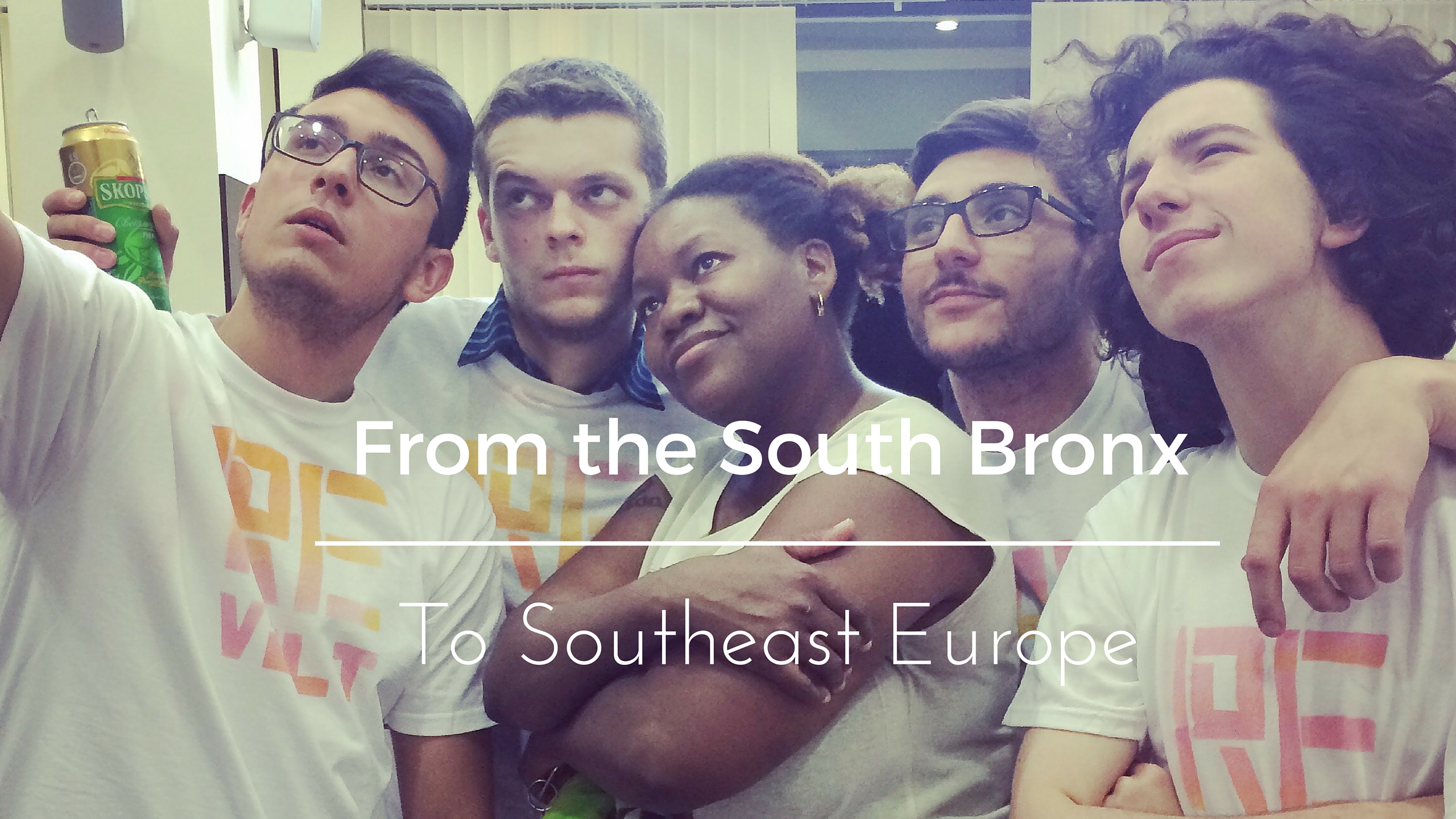
Today was the final day of the international debate education association (IDEA) program in Macedonia. The two tracks– visual art (graffiti)/comics and hip-hop/poetry – were responsible for presenting their final projects.
Prior to DJ Goce’s arrival, I had taken the students through a series of lessons designed to help them write an activist mission statement, and then poetry and or rap about social justice issues they were working on in their communities. Some of the themes that emerged were: child abuse, LGBTQ2 discrimination, ethnic conflicts, and racism. In general, the theme of FREEDOM could be characterized as the over arching idea that came forward over and over again.
The four groups that emerged were called The Balkanoid Party Breakers, The Illuminators, Freeling, and The Arrival. The students wrote and conceptualized their performances collaboratively. After I took them through lessons designed to help them write, DJ Goce and I took them crate digging in order to find sample-able tracks for their poems and raps.
Sampling is a term used to describe taking riffs, melodic lines, and beats from previously recorded records. DJ Goce was able to capture these “samples” on a machine and assign them to different tracks. He could then play the riff over and over in what is called a “loop,” or place it in a strategically pleasing pattern on top of a beat. It was so good to rejoin this version of the creative process. I began writing Hip Hop verse in junior high school, and this version of studio recording was very familiar to me, though I had not done it in years. I co-produced sample choices choices and came up with baselines.
We spent most of the preview previous day listening to records ranging from Stevie wonder to Brazilian bossa nova. The four projects that emerged were fantastic!
If I want to compare these young people’s concerns with young people’s concerns in the US, I would have to say that ideas about access and individuality figure more largely in the Balkans than they do in the US. For instance, in the Balkans it would be much more difficult for a young person to say, “I think I will just backpack around the continent instead of heading straight to college.” There is a convoluted be VISA process because of the communist history of the countries, and the fact that they are not wealthy countries. In order to go from one place to another, citizens of the Balkans must prove they have a job in a place like England, and even have the employer to sign so that they can travel.
I would say there is a sense that anything is possible among American youth , whereas that sense is more tempered in the Balkan youth.
On the other hand, I would say they are operating with in a culture of normalized dissent and revolution. I get the impression that young people in the US perceive the recent spate of visible protests as a reemerging phenomena that had been dormant for a time. In the Balkans because of the history of wars and the recent dissolution of the Yugoslavian republic, the students are very used to the presence of protest and the possibility of protest. In fact, one of the Greeks students told me that the most popular website in the country is the one that tells you which public services will be on strike for the day.
The students performed their works enthusiastically, and I am excited about how they will use the ideas they worked on in their home communities.
Check out the video here: